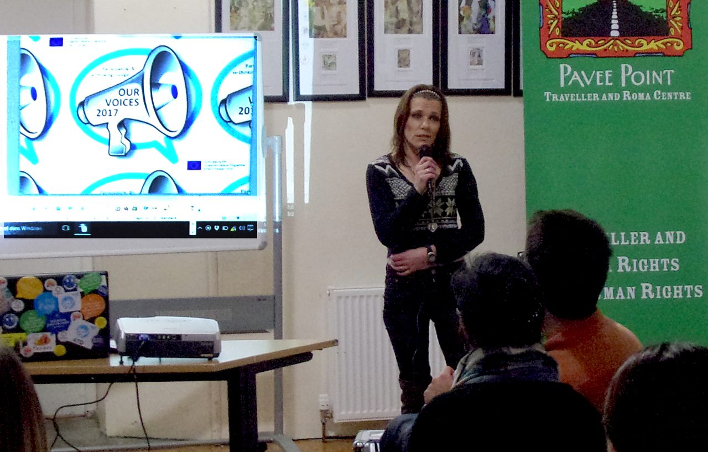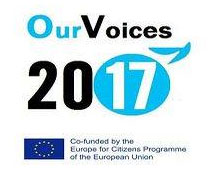Voices from the Margins: Considering Europe with People Living in Poverty

It is important for European citizens affected by social exclusion and poverty to play an active role in international debates. This is why a project called Our Voices is bringing together people who participate in NGOs in three European countries: in Spain, Andecha Participacion y Trabajo Comunitario and ATD Fourth World–Spain; in Poland, ATD Fourth World–Poland; and in Ireland, ATD Fourth World–Ireland.
In addition to people living in poverty, this project is also oriented to include professionals from local authorities and civil society organisations. The project began in February 2016 and is funded by the European Commission’s Europe for Citizens Programme, under the Civil Society Participation chapter.
The objective of the Our Voices project is to deepen the debates regarding the future of Europe, focusing on a socially inclusive Europe as described in the European Social Charter and the Charter of Fundamental Rights of the EU. Cohesion has been deteriorating between EU institutions and many citizens, particularly those living in poverty. To reverse this deterioration, the project favours the participation of people facing social exclusion and drives a determination to rediscover the social and human dimensions of the European Union and to sharpen understanding of the basic agreements that underlie it (the European Social Charter and the Charter of Fundamental Rights of the EU).
By taking part in this project, we hope to better understand the substance of the European Social Charter and the Charter of Fundamental Rights of the EU, the work of the European Union Agency for Fundamental Rights, and of European Committee of Social Rights, and the work of the EU in ensuring the human rights of its citizens. It is important to incorporate the participation of people living in conditions of poverty and exclusion in order to determine the degree to which these mechanisms are effective, and how all EU policies affect them. It is necessary to begin from their experiences to collaboratively build an understanding of how policy implementation plays out on the ground, and to develop proposals for improvement. In the final stage of this project, the groups will develop effective recommendations and proposals for building a Europe that is more inclusive for all people. It is clear that if policies are positive and inclusive for people who endure the greatest difficulties, they will be inclusive for all.
To reach these objectives, the project will benefit from a participatory process that will facilitate a discussion on the guarantee to rights in the EU (every group will choose to discuss one or various topics relevant to the Social Charter or to the Charter of Fundamental Rights).
The results of this project will be publicized in several ways, through different media. A conference is planned in Strasbourg, France with participants from each group involved in this project to share its findings and to gain further insights regarding the EU mechanisms discussed (including the European Social Charter and the Charter of Fundamental Rights of the EU).
[This project was funded with support from the European Commission. This article reflects the views only of the author, and the Commission cannot be held responsible for any use that may be made of the information contained therein.]


